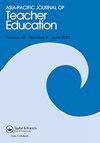转变教师教育还是转变学校:一个危险的困境?
IF 1.6
3区 教育学
Q2 EDUCATION & EDUCATIONAL RESEARCH
引用次数: 0
摘要
值得注意的是,在许多国家,教师教育已成为决策者和政治家关注的新焦点。或者,如果我们从“一级以上”假设的角度来看,这可能并不那么引人注目。毕竟,如果对学校施加的持续的——有人可能会说:无情的——提高成绩的压力没有产生决策者和政客们希望看到的结果,那么问题必须在“一个层面上”解决,即教师教育的质量。有人可能会说,将重点从学校转移到教师教育是合乎逻辑的,尤其是如果人们普遍认为教学是影响学生成绩的最重要的校内因素,但这一观点存在问题的话。毕竟,如果学校的改善停滞不前,那一定与教师有关,而且由于教师是为了成为教师而接受教育的,因此教师教育的质量很快成为罪魁祸首——或者从政策角度来看:成为政策干预的主要目标。有趣的是,“向上一级”的逻辑有其局限性,因为决策者和政治家很少得出结论,认为问题出在教育政策和教育政治上。他们顶多指责政策的制定或实施方式。但认为政策或周围的政治本身就是问题所在的想法几乎从未被考虑过。就教师教育而言,一般有两种改进策略。在许多国家流行的一种策略是吸引“合适”的候选人参加教师教育课程。这听起来可能很合理,很适合抱怨选择教师职业的学生素质的政策言论。但有人很可能会说,寻找“合适”或“最好”的教师教育候选人实际上表明了对教育本身力量的怀疑。这几乎表明,只有能够吸引到合适的学生,教师教育才能成功。但这种说法就像说学校只有能够吸引“合适”的学生才能改进一样有问题。(尽管这些选择机制当然是持续的,并且可能为影响学生成绩的最重要因素提供非常不同的“证据”。)当然,改善教师教育的另一条途径是教师教育课程本身发生了什么。这些问题涉及课程、教育学、实践和理论组成部分之间的关系、标准和专业价值观的作用、知识氛围、学习、探究和研究的作用等等。教师教育工作者知道这些方面很重要,也知道有意义的课程、相关的教育学、,实践和理论组成部分之间的生产性关系,以及对标准、价值观和更广泛的社会趋势的批判性参与。《2023年亚太教师教育杂志》第51卷第3期213–215https://doi.org/10.1080/1359866X.2023.2207290本文章由计算机程序翻译,如有差异,请以英文原文为准。
Transforming teacher education or transforming the school: a dangerous dilemma?
It is quite remarkable that in many countries, teacher education has become the new focus of attention of policy-makers and politicians. Or perhaps this is not that remarkable if we look at it from the perspective of the “one-level-up” hypothesis. After all, if the ongoing – some might say: relentless – pressure on schools to improve their performance is not yielding the results that policy-makers and politicians want to see, then the problem must be located “one level up,” that is, with the quality of teacher education. One could argue that shifting the focus from schools to teacher education is logical, particularly if one falls for the widespread but problematic belief that teaching is the most important inschool factor influencing student achievement. After all, if school improvement stalls, it must have something to do with teachers, and since teachers are educated in order to become teachers, the quality of teacher education appears quickly as the main culprit – or in terms of policy: as the main target of policy interventions. It is interesting to see that the logic of “one level up” has its limits because policy-makers and politicians very seldomly conclude that the problem lies with educational policy and educational politics. At most, they blame the way in which policies have been taken up or implemented. But the idea that the policy or the surrounding politics itself is the problem is hardly ever considered. Where it concerns teacher education, there are generally two strategies for improvement. One strategy, which is popular in many countries, is that of attracting the “right” candidates to teacher education programmes. This may sound reasonable and fits well into a policy rhetoric that complains about the quality of students who opt for a career in teaching. But one could well argue that a search for the “right” or the “best” candidates for teacher education actually displays a disbelief in the power of education itself. It almost suggests that teacher education can only be successful if it is able to attract the right students. But this claim is as problematic as saying that schools can only improve if they are able to attract the “right” students. (This is notwithstanding the fact that these selectionmechanisms are of course ongoing and may provide very different “evidence” about what the most important factors influencing student achievement actually are.) The other avenue for the improvement of teacher education is, of course, about what happens in teacher education programmes themselves. These are questions of the curriculum, the pedagogy, the relationship between practical and theoretical components, the role of standards and professional values, the intellectual climate, the role of study, inquiry and research, and so on. Teacher educators know that these aspects matter and also know that there are ongoing challenges about meaningful curricula, relevant pedagogies, a productive relationship between practical and theoretical components, and the critical engagement with standards, values, and wider trends in society. One ASIA-PACIFIC JOURNAL OF TEACHER EDUCATION 2023, VOL. 51, NO. 3, 213–215 https://doi.org/10.1080/1359866X.2023.2207290
求助全文
通过发布文献求助,成功后即可免费获取论文全文。
去求助
来源期刊

Asia-Pacific Journal of Teacher Education
EDUCATION & EDUCATIONAL RESEARCH-
CiteScore
4.40
自引率
7.70%
发文量
29
期刊介绍:
This journal promotes rigorous research that makes a significant contribution to advancing knowledge in teacher education across early childhood, primary, secondary, vocational education and training, and higher education. The journal editors invite for peer review theoretically informed papers - including, but not limited to, empirically grounded research - which focus on significant issues relevant to an international audience in regards to: Teacher education (including initial teacher education and ongoing professional education) of teachers internationally; The cultural, economic, political, social and/or technological dimensions and contexts of teacher education; Change, stability, reform and resistance in (and relating to) teacher education; Improving the quality and impact of research in teacher education.
 求助内容:
求助内容: 应助结果提醒方式:
应助结果提醒方式:


